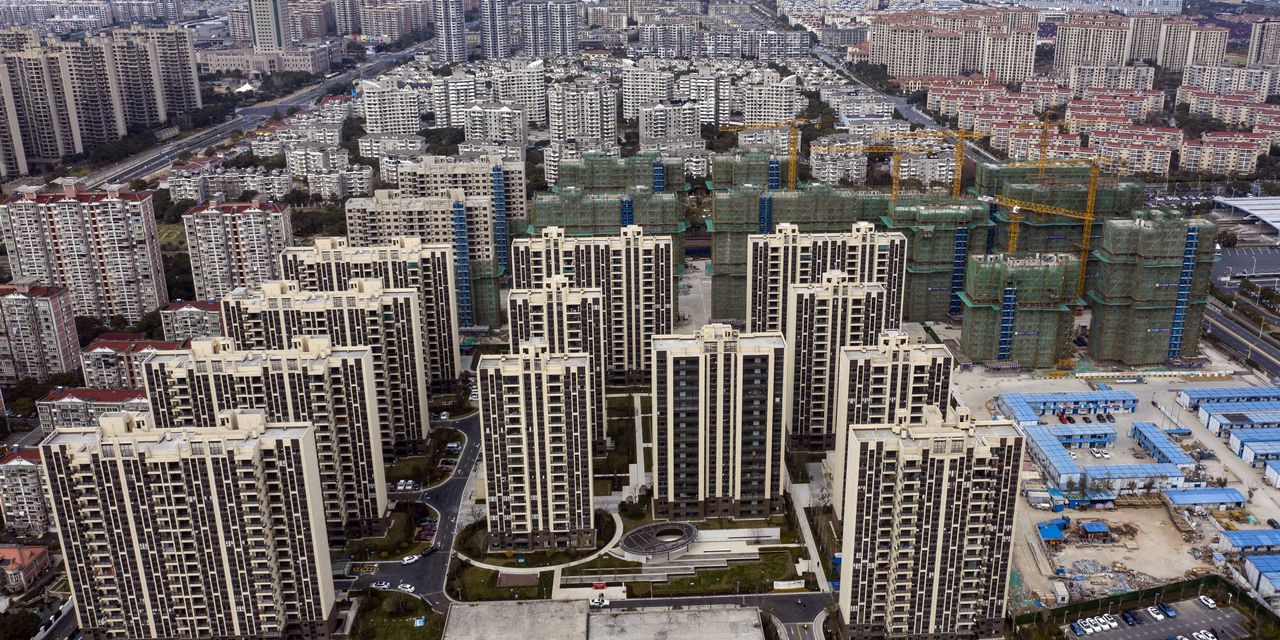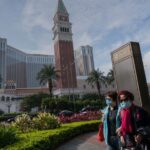
BEIJING—China’s central bank lowered its benchmark lending rates, stepping in to support a slowing economy that has been weighed down by a slump in the property market during a politically important year for leader Xi Jinping.
The People’s Bank of China said Thursday that it cut its five-year loan prime rate, a benchmark for medium- and longer-term loans including mortgages, to 4.60% from 4.65%—the first such cut since April 2020. The Chinese central bank also lowered the one-year loan prime rate by 10 basis points to 3.70%, the second cut to that rate in as many months.
The moves were widely expected by analysts and traders after the central bank on Monday lowered rates on its one-year medium-term lending facility by 10 basis points, to 2.85%, underscoring Beijing’s shift to a looser policy stance as economic clouds gather.
“China’s easing cycle is in full swing now,” Sheana Yue, a Singapore-based economist at Capital Economics, told clients in a note Thursday. Ms. Yue predicted that the central bank would continue to slash rates in the coming months, which in turn would help to shore up housing demand.
The move to push down borrowing costs follows a raft of economic data released by China on Monday that showed slowing growth in the final months of last year, as domestic consumption was hit by new Covid-19 outbreaks and turbulence in the country’s property sector weighed on sentiment.
After a 2021 in which Beijing unleashed a string of regulatory crackdowns on the technology, private-education and real-estate sectors, China’s leaders are putting stability first in 2022.
The prospect of slowing growth and instability in the real-estate market—a sector that by some measures accounts for roughly one-fifth of the Chinese economy—risks spoiling the political mood ahead of a closely watched Communist Party meeting later this year, when Mr. Xi is expected to break with recent precedent and seek a third term in power.
On Sunday, China’s top law-enforcement body issued a rare warning about the political implications of domestic economic weakness, warning that, “with the economic downturn, some deep-seated problems may surface.”
“Once economic and financial risks are mishandled, they can easily be transmitted into the social and political sphere,” read the commentary, which was published by the Communist Party’s Central Political and Legal Affairs Commission, which oversees the country’s police, prosecutors and courts.
Last month, the Communist Party’s top decision-making body, the Politburo, enshrined stability as the “top priority” for China’s economy in 2022, in a meeting chaired by Mr. Xi.
Echoing that imperative, Liu Guoqiang, a vice governor of the People’s Bank of China, said Tuesday that the central bank would act early and more forcefully to stabilize the economy this year, guiding financial institutions to expand their credit issuance while employing a variety of tools to ensure ample market liquidity.
The central bank bases its benchmark lending rates each month on quotes from the country’s major lenders. The banks, in turn, price new loans using the loan prime rate as a reference. Since the new benchmark was introduced in 2019, Chinese banks have gradually replaced existing loans with ones based on the new rate regime.
China’s economy expanded 8.1% last year. However, in the fourth quarter, gross domestic product increased just 4% from the same period a year earlier—the slowest such pace since the beginning of the Covid-19 recovery in the second quarter of 2020.
In face of downward economic pressure, China’s top economic planning agency, the National Development and Reform Commission, said Tuesday that Beijing is expediting the rollout of major infrastructure projects to counter uncertainties early in the year.
To some economists, the past two months’ rate cuts, while welcome, are still rather modest in scope when compared with the magnitude of the woes facing the economy.
In particular, the five-basis-point cut in the five-year loan prime rate was smaller than expected, a decision that economists at Citigroup said could reflect regulators’ reluctance to bail out the real-estate sector with more stimulus. The government last year began more strictly enforcing borrowing limits for overstretched developers out of concern about excessive leverage in the property market—pushing some home builders to the brink of default.
Economists at investment bank Nomura are worried about the rising economic and social costs of China’s zero-tolerance Covid containment strategy, as well as the weak property market and slowing export growth. They say that a much more aggressive easing policy is needed to keep the economic recovery on track.
As it is, the easing bias of China’s central bank contrasts with the policy direction of the Federal Reserve and other developed-world central banks, which are preparing to wind down pandemic-era stimulus to curb high inflation.
—Bingyan Wang contributed to this article.
Write to Jonathan Cheng at [email protected]
Copyright ©2022 Dow Jones & Company, Inc. All Rights Reserved. 87990cbe856818d5eddac44c7b1cdeb8








